- Home
- Al Sarrantonio
Queen of Mars - Book III in the Masters of Mars Trilogy Page 4
Queen of Mars - Book III in the Masters of Mars Trilogy Read online
Page 4
Because, I knew, he was in love with me.
And I with him.
Eight
“What do you think, Rebecca?”
In the mirror reflection, I could see my lady-in-waiting’s frown as she stood behind me, but her voice said sweetly, “Very becoming, my lady.”
“Don’t lie to me,” I said.
“You do look rather...martial, your majesty.”
“Yes....”
I allowed myself a slight smile, which threw the entire look off. Head to toe in armor, a deep red, almost black, severe, with black leather boots. The outfit outlined my thin frame and made it look sharp and tight as a knife blade. From the table beside me I hefted up my helmet, dark red with a thin plume of jet black color trailing from the back like a ponytail. I fitted it onto my head and turned to stand full in front of my chambermaid.
“There!” I said, putting my gloved hands on my hips. “What do you think now?”
This time her frown was a full one. “It looks rather...warm...”
“Bah! It will be fine. I always knew I would need something impressive to go into battle, and it took me months to design this. Darwin said the same as you but you’re both wrong.”
She bowed her head. “As you wish, m’lady.”
“Help me fit on my sword.”
She did so, and I discovered that, in its fancy scabbard, encrusted with rubies and sapphires and the occasional diamond, it was much heavier than I had thought it would be. In fact, it made me list slightly to the left, which I had to compensate for – which soon gave me a cramp in either side as I strutted around the room.
I went to the window and looked down at the courtyard below, where my army awaited me. There was a sea of mounted men in rank and file, and not a hint of metal armor among them. The day was warm, and the battle weeks away. I instinctively knew that if I appeared among these felines in this garb I would be an instant laughing stock. Not a good way to begin a campaign!
I removed my helmet, breathing heavily in the warm air, and wiped perspiration from my brow. I regarded myself in the mirror again, and a slow smile came to my face. I turned to Rebecca.
“Well, perhaps it is a bit much. Help me off with it, will you? I believe a simple tunic will do at this point. We can pack the light armor General Xarr gave me months ago. And Rebecca?”
She stopped in the middle of unfastening one of the hard-to-use buckles that were built into the frame of my warrior cage. “Yes, m’lady?”
“Let’s keep these between you and me, shall we? I wouldn’t want the troops to think I was a fool. At least not yet, anyway.”
She stifled a short laugh and nodded enthusiastically. “As you wish, your majesty.”
When it was all off, a great heavy pile of unwieldy heavy metal on the floor, I asked her sheepishly, “Would you do me the great favor of hiding this in a closet when I’m gone?”
When I appeared, there was a stiffening of backs and a hush. I rode slowly, inspecting the troops, nodding regally and keeping a steady pace. I had no idea what I was doing, but tried to remember Xarr’s advice: “Look like you know what you’re doing, and you’ve already done it.” I hoped that my light crimson tunic, thinly fringed in a light shade of gold, was appropriate. The matching cape wafted behind me in the gentle breeze, and my sword, in its plain, lighter scabbard, felt good against my side.
When I reached General Reis at the head of the column his eyes flickered with either mild approval or disdain, I could not tell which. He sat stiffer and taller in his saddle than an officer should, I thought, but we would see his prowess tested on the battlefield, which was the most important thing.
“Good morning, general,” I said.
“Your majesty,” he replied, bowing his head slightly.
“A good day to ride,” I continued, taking my place to his right. “Shall we?”
“As you wish, your majesty,” he said, and gave the firm order to march, waving his hand back and then forward.
“Onward, for the glory of Mars!” he shouted, and the great army began to move.
At the gates of Wells, which were open wide, I looked for Darwin in the massive crowd, but was disappointed to see him nowhere. His distinctive white fur with the single stripe on his crown would have been visible anywhere, but was not to be found in that sea of faces, some shouting encouragement, some crying for a relative gone off to war, some shouting the slogans of war fever. It was magnificent and frightening – but without Darwin, I was a little lonelier.
I turned in my saddle to regard the Hall of Assembly, already shrinking in the distance behind us. Darwin was there, no doubt, doing as I had asked, helping to run a world while its young Queen went off to war.
“Something wrong, your majesty?” Reis asked in his unctuous voice.
“Nothing that victory won’t cure, general,” I said, turning back around to fix him with a steady gaze.
He nodded quickly, and turned his attention back to the long road ahead of us.
I felt as alone as I ever had.
Oddly, that night, camping under the stars for the first time in my life, was one of the happiest I had ever spent. And I didn’t know why. Was it because I was finally fulfilling the destiny I had been groomed for my whole life? Was it because I was free of the constraints of Wells, the political infighting, the lying, the bowing and scraping? I had no idea. I only knew that I felt free for the first time ever.
It was a beautiful evening, with a purpling bowl of sky at the setting horizon darkening to deepest black overhead, with a billion twinkling stars accompaniment to the desert crickets of late summer. The gentle hills were still green with vegetation, but soon this would change to sparse scrub as we skirted south of the Great Desert west of Wells, which stretched almost halfway from the equator to the North Pole. Luckily routes had been carved below this sandy continent over the centuries, and it was not without water and rough-hewn towns. We would not be long out of sight of civilization on this march, which would eventually carry us away from the looming desert and into the plains of Margarifiter Planum, far north of my grandmother’s homeland, Argyre, and then into the lowlands of Valles Marineris itself. I had only seen this massive gash in our planet once, by air, and even from a height of 10,000 feet it had astounded.
Phobos was up, casting its ghostly pink light. Unable to sleep, I wandered through the camp, always with my bodyguard of two, and listened to the night sounds of an army at rest. There was much cursing, most of it mild at the moment, the complaints of footsore foot soldiers or riders whose derrieres were not yet formed to the saddle. There were many card games, most of them Jakra, which I longed to play, but, as instructed by Xarr, I was not to do because too much mingling was not proper. There was some singing, especially among one contingent of the Yern clan, who were known for their deep, melodious voices. This was not an exaggeration. I stopped to listen to a native song, from far to the north:
And his homeland he missed,
The young Yern soldier,
And the true love he left behind,
In battles he fought
He became ever bolder,
But he never forgot his homeland,
Or the true love he left behind...
Imagine a deep tone of sadness and longing injected into these words, a lyrical bass voice that carried with it the hopes and dreams of a people, and you will have some sense of what I heard.
I walked on, nodding to these soldiers as I passed, and, suddenly, I had walked out of camp.
Only I had not quite run out of soldiers. For there was a solitary fellow off in a field, running hither and yon, aiming a small tube at the sky.
“I wouldn’t bother with ‘im if I was you, your majesty,” one of my guards said, with deference.
“Why not?”
“He’s balmy, is why,” the guard replied.
I looked at the other guard for confirmation, but he was stone-faced.
“I should like to speak with him,” I decided.
The first guard shrugged and said, “He’s balmy, but he ain’t dangerous.
“Very well, then. Stay here.”
I walked on alone, into the field.
The fellow did not see me at first, and kept up his strange dance, moving from one spot to the other, aiming his instrument at the sky, and then quickly moving to yet another spot. As I approached I heard that he was mumbling to himself: “Yes...oh, yes. Fine. Yes,” as he went about his work.
“Excuse me?” I said when I was nearly upon him.
He jumped as if an electric charge had been run through him.
“Don’t ever do that!” he squealed, panting and looking about him as if ready to be attacked.
“It’s only your Queen, and I wish you no harm.”
His eyes fixed on me like a mad colt, but eventually his breathing evened and he calmed down.
He continued to stare at me.
“Is it really you...?” he asked.
I said nothing, and he made a jerking motion forward, stepping closer to me. He tripped over an unseen stone, and went sprawling at my feet.
I heard the tinkle of glass.
“My telescope!” He shrieked, as if he had been stabbed.
He pulled himself into a sitting position and retrieved the broken instrument from beneath him and examined it.
He began to gently sob, rocking back and forth, before suddenly remembering my presence. He held the instrument up, a movement which caused broken glass to slide down the useless tube.
“You’ll forgive me, your majesty,” he said, issuing hitching sobs. “It’s just that I’ve had it so long, and took so much pleasure in it, and now it’s...useless!”
Unable to continue, he broke into a fit of uncontrolled weeping.
I waited a proper amount of time, and then asked, “You’re an astronomer, then?”
This calmed him somewhat, though his nod was a tentative one. “Of sorts. Not the proper kind, mind you, but I do love the sky so.”
“What is your place in the army?”
“Whu–?”
This seemed to throw him, and I was about to repeat my question when he answered, with a bitter laugh, “Just a foot soldier, your majesty. And not much of one. I grew potatoes, you see, but now I’m to fight Baldies. This...” he held up his broken telescope, “is just a diversion. Something to keep me from, well, thinking about fighting Baldies.”
“What is your name?” I asked.
“Copernicus, your majesty.”
“Are you very good at astronomy?”
“Oh, yes!” He stood up. “I know the sky like I know the back of my hand, or every furrow in my far field.”
“How did you learn?”
“By looking at the sky, of course! Every chance I can!” He regarded the broken tube in his hand, and let it fall to the ground. “I did, that is...”
“I’ll tell you what, Copernicus. I have a beautiful instrument back in Wells, a telescope that belonged to my father. It was made by the Science Guild, designed by Newton himself, and has been collecting dust for years because I have never showed the interest in the heavens that my father did. It’s less than a day’s ride back to Wells. What would you say if I sent back for it, and gave it to you?”
His eyes widened, as if I had told him that giant harlows were bearing down on him.
“You can’t mean that.”
I nodded. “Consider it done, Copernicus.”
He fell at my feet and began to weep again. “You don’t know how happy you’ve made me!”
Embarrassed, I drew my paw away as he slobbered over it. “Don’t worry, Copernicus, I may need you to do me a favor someday.”
“Anything!” he wept. “Anything, my Queen!”
I left him there, drooling and gathering the pieces of his broken instrument. I gave the order to one of my bodyguards, who left to find a rider, while the other one stood shaking his head.
“Like I told you, your majesty: balmy.”
“He may be balmy, as you say, but I have the feeling we may need him before all this is over.”
The morning dawned bright. I awoke refreshed, dressed quickly with Rebecca’s assistance in my tent, and emerged to find General Reis waiting for me. A map table had been set up in front of him.
“We have news from the west,” he said.
I noted the drone of an airship overhead, and looked up to see one of Newton’s fleet lazily circling the army. It, and as many others as could be spared, would accompany our march from now on. I found its motor’s purr comforting.
“What have you heard?” I said, turning my attention to Reis.
He spread out the map before him and pointed to the great gaping mouth that was Valles Marineris, to our north and west. His claw traced the extreme southeastern edge of the canyon.
“Frane’s army is concentrating here,” Reis stated. We have aerial reconnaissance to prove it, as well as advance scouts who, as you can imagine, have not been able to get very close. A few spies have been trying to infiltrate the Baldy army, but you can imagine the difficulties. We will continue to work on it.”
“Why this particular spot?” I inquired, studying the map.
“It is close to their supply lines,” Reis answered, “and the ground to the south is level. I propose we approach from the west, skirt the tip of the canyon and attack them where they are camped.”
“Is it high ground?”
His face showed a puzzled look. “That’s what disturbs me. It is suitable ground, but there is better land for entrenchment to the north or west.” He looked at me blankly. “It’s almost as if they can’t wait to fight us.”
“Perhaps they are overconfident.”
“Let’s hope so,” he said, rolling up the map.
“It’s time to break camp, and find out.”
That day’s march, and the next three, were easy. The weather was mild, late summer breezes mitigating the heat, and the nights were cool and clear. Copernicus’s telescope arrived, and I fended him off as long as I could before finally giving in to explore the night sky with him.
“You know,” I cautioned, “this is something I’ve never been much intrigued by. My father, and my grandmother before him, were greatly interested in the planets and stars, but for me they’re only something to fill the night sky.”
“How wrong you are, your majesty!” Copernicus enthused. He had trained the instrument – a sleek white tube on a sturdy mount made of junto wood– on Diemos, which just then was passing overhead. When he moved aside, squealing with delight, I looked into the eyepiece.
“It looks like a pockmarked potato,” I said, with little enthusiasm, as the moon quickly moved across the field of view.
“Yes! But isn’t it beautiful?”
I gave the eyepiece back to him, and studied the beautiful night with my naked eyes.
A blue dot was just rising in the east, which I knew to be Earth.
“Now that’s something I’ve always found quite interesting,” I said in passing.
“Hmmm?” Copernicus took his eye from the instrument and noted the direction of my pointing.
“Ahh!” he cried, immediately swiveling the telescope that way. “It’s up!”
After he had had his look, he turned the instrument over to me, and I saw a tiny blue and brown world floating like a child’s play marble in the heavens.
“It’s where the Old One’s came from!” Copernicus said brightly behind me.
I took my eye from the eyepiece. “Who told you that?”
He became suddenly quiet in the dark.
“Speak to me, Copernicus.”
“I have... proof,” he said quietly.
“What sort of proof?”
He reached into his tunic, and withdrew a single sheet of paper, many times folded. It looked fragile.
With a trembling hand he held it out to me.
“Will this get me in trouble, your majesty?”
“Why would it?”
“Heresy, perhaps?”
/> I laughed, taking the folded sheet from him. “It’s not heresy to think that the Old Ones came from the stars, or Earth, or anywhere else, Copernicus. The truth is, no one knows where they came from. I heard all kinds of stories growing up. To tell you the truth, I found those stories much more interesting than the night sky. I’ve always been greatly interested in history, and the origins of the Old Ones is the greatest mystery of all, isn’t it?”
“Not if you believe that paper,” he whispered reverently.
I carefully unfolded it, and, holding it delicately by two corners, angled it toward the weak light of Deimos. It was a ruled sheet, and very old, but well preserved. There was handwriting on it, a bit of a scrawl, but after tilting it this way and that I was able to read the writing. It was a journal entry of some sort.
“The last ship leaves tomorrow, and I’ll be on it,” I read out loud. “Despite all our time here, we have failed. If only we had put our efforts into saving home, instead of remaking Mars.”
I looked at Copernicus in the dark. “But there’s no mention of Earth! It could be anywhere it’s talking about!”
“Turn it over,” he said, in a near whisper.
I did so, and squinted at a final sentence, which I could barely make out in the weak light: “Tomorrow we return to Earth.”
“Where did you find this?” I asked.
“In my potato field, when I was plowing. It was in a very old box, made of metal which didn’t rust, with a seal on it that hissed when I broke it open. There were some trinkets, and that paper, which was the last page of a journal.”
I carefully refolded it and handed it back to him.
“Take good care of that paper,” I said. “When we return from battle Newton will want to see it.”
“I’ve never told anyone before, because I thought I would be beaten, or worse.”
I laughed. “What was the rest of the journal about?”
“Whoever wrote it was a scientist,” Copernicus said. “And mentioned cats once or twice.”
“And?” I urged.
“That they were thriving, and would be left behind, along with the other... animals.”
“Animals?” I laughed again, but stopped when I saw the seriousness of Copernicus’s demeanor.

 Five World Saga 01 Hornets and Others
Five World Saga 01 Hornets and Others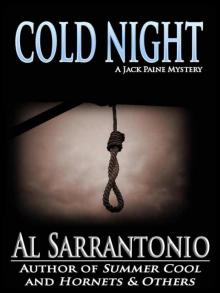 Cold Night (Jack Paine Mysteries)
Cold Night (Jack Paine Mysteries)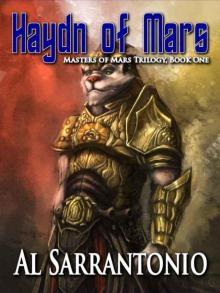 Haydn of Mars
Haydn of Mars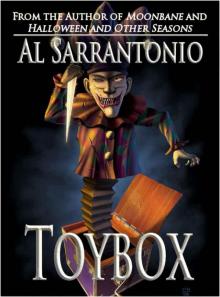 Toybox
Toybox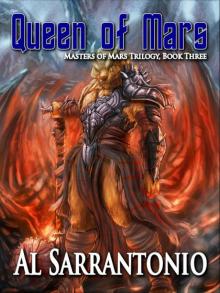 Queen of Mars - Book III in the Masters of Mars Trilogy
Queen of Mars - Book III in the Masters of Mars Trilogy Exile
Exile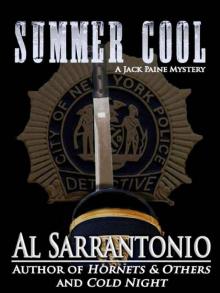 Summer Cool - A Jack Paine Mystery (Jack Paine Mysteries)
Summer Cool - A Jack Paine Mystery (Jack Paine Mysteries)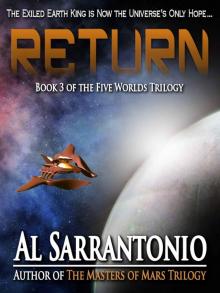 Return - Book III of the Five Worlds Trilogy
Return - Book III of the Five Worlds Trilogy The Orangefield Cycle Omnibus
The Orangefield Cycle Omnibus Summer Cool jp-2
Summer Cool jp-2 The Boy With Penny Eyes
The Boy With Penny Eyes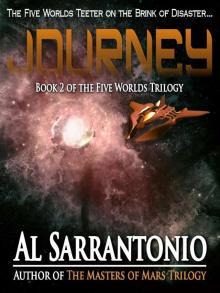 Journey - Book II of the Five Worlds Trilogy
Journey - Book II of the Five Worlds Trilogy Kitt Peak
Kitt Peak Campbell Wood
Campbell Wood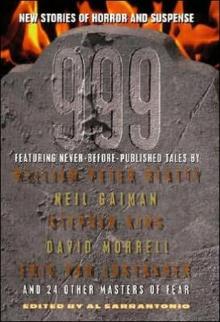 999
999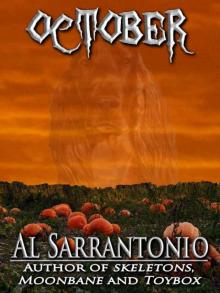 October
October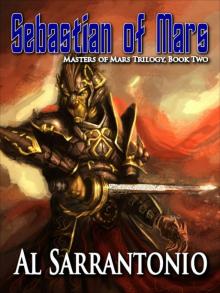 Sebastian of Mars
Sebastian of Mars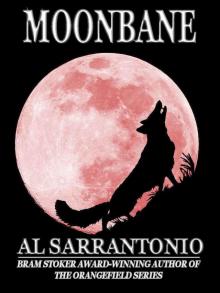 Moonbane
Moonbane Totentanz
Totentanz House Haunted
House Haunted Halloweenland
Halloweenland Hornets and Others
Hornets and Others